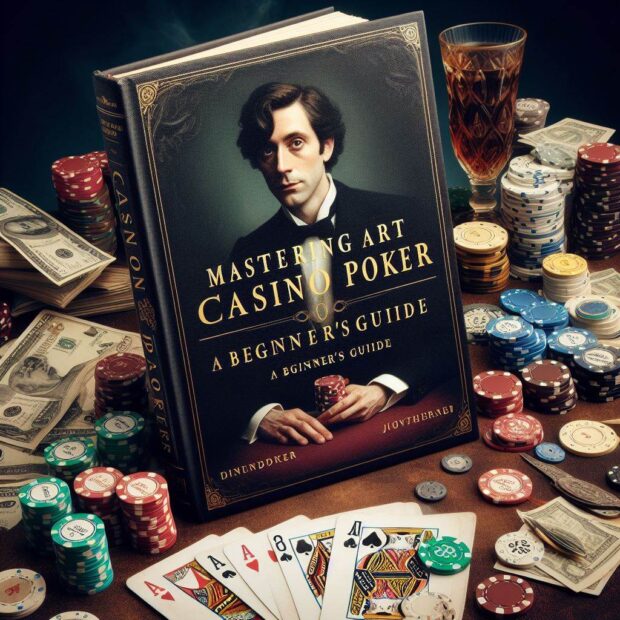Mastering the Art of Casino Poker: A Beginner’s Guide

Welcome to the enthralling world of casino poker, a game not just of luck but of skill, strategy, and psychological insight. Whether you’re drawn to the glamor of Las Vegas, the strategy of Texas Hold’em, or the historical allure of Five-Card Draw, Poker: A Beginner’s Guide poker offers something for every enthusiast. This guide aims to lay the foundation for your journey into the complex and rewarding realm of casino poker.
Understanding the Basics
Before diving into strategies, it’s crucial to grasp the fundamental rules and objectives of poker. In most variants, the goal is to create the best hand possible or to convince other players you have a strong hand, even when you don’t. Learning the ranking of poker hands is your first step. From the high card as the least to the royal flush as the pinnacle, understanding these rankings is paramount.
Choosing Your Game
Poker comes in many forms, with Texas Hold’em being the most popular. However, other variants like Omaha, Seven-Card Stud, and the aforementioned Five-Card Draw each offer unique challenges and require different strategies. As a beginner, Poker: A Beginner’s Guide finding a variant that resonates with your style of play and mastering it before moving on to others is advisable.
Starting Hand Selection
In games like Texas Hold’em and Omaha, selecting which hands to play is a critical decision that can affect the outcome of your game. A common beginner mistake is playing too many hands. Learning to be selective, focusing on hands with the best chance of winning in various situations, is a skill that will serve you well.
The Importance of Position
Your position at the table relative to the dealer affects the amount of information available to you when making decisions. Being in a “late” position, where you act after most players, can be advantageous because you can observe their actions before making your own.
Managing Your Bankroll
One of the most critical aspects of becoming a successful poker player is effective bankroll management. Only play with money you can afford to lose, and set limits on your losses to prevent any emotional decision-making that could lead to bigger losses.
Reading Your Opponents
Poker is as much about playing your opponents as it is about playing your cards. Observing body language, betting patterns, and even the amount of time they take to make decisions can give you valuable information about the strength of their hand.
Bluffing
Bluffing is a pivotal part of poker, allowing players to win with weaker hands. However, successful bluffing requires a combination of confidence, timing, and a good understanding of your opponents. Use it sparingly, especially as a beginner, until you develop a more nuanced understanding of the game.
Learning Continuously
Poker is a game of lifelong learning. Even the most experienced players continually study and refine their strategies. Take advantage of books, online resources, and poker forums to expand your knowledge and skills.
Practice Makes Perfect
The theoretical knowledge of poker is essential, but nothing beats actual experience. Start by playing low-stakes games online or with friends to hone your skills in a low-pressure environment. Pay attention to your play and learn from your mistakes.
Enjoy the Journey
Lastly, remember that poker should be enjoyable. The journey from a beginner to a seasoned player is filled with ups and downs, but the satisfaction of gradually mastering this complex game is unparalleled.


